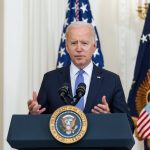Robert F. Kennedy Jr, the outspoken critic of mainstream narratives about coronavirus and vaccines, has once again been silenced by big tech censorship. YouTube recently removed one of Kennedy’s videos, adding to their growing list of acts suppressing free speech. Just a few weeks ago, they censored his interview with Jordan Peterson, citing their so-called “vaccine policies.” Now, they have targeted Kennedy once more, pulling a video featuring former NY Post political reporter Al Guart.
In the case of my interview with @al_guart, @YouTube probably acted on its own initiative. It has internalized the political wishes of the establishment to the point where it knows what to censor without being told. #Kennedy24
— Robert F. Kennedy Jr (@RobertKennedyJr) June 27, 2023
Kennedy took to Twitter to voice his frustrations, questioning whether we should be concerned about giant tech corporations manipulating information like Russia allegedly did during the 2016 election. He criticized the close relationship between industry and government, arguing that private censorship is just as damaging to free speech as government censorship.
Interestingly, despite YouTube’s censorship, the interview with Al Guart can still be found on Spotify, which Kennedy invited the public to listen to. It seems that YouTube’s actions are simply part of a larger pattern of silencing alternative viewpoints.
Kennedy then drew attention to what he called the “Twitter Files,” claiming that government agencies, including the FBI, have been instructing social media platforms like Twitter on whom to censor. He implied that Facebook, YouTube, and others have likely received similar requests. Kennedy’s assertion highlights the alarming level of control these tech giants have over public discourse.
Furthermore, Kennedy emphasized that YouTube’s actions regarding his interview with Al Guart were likely not a result of external pressure but rather a reflection of their ingrained understanding of what to censor. This suggests that YouTube has internalized the political wishes of the establishment, making independent thought and challenging mainstream narratives increasingly difficult.
It is clear that Kennedy has become a target of big tech censorship due to his willingness to challenge the status quo. He has been a vocal proponent of free speech, recognizing that without it, democracy cannot thrive. He has consistently spoken out against the suppression of speech, arguing that it is always the good guys who fight for openness and debate.
Robert F. Kennedy Jr’s clashes with social media platforms are not isolated incidents. Just last month, he revealed that Instagram, owned by Mark Zuckerberg’s Facebook, had banned him from creating new campaign accounts for 180 days. Kennedy criticized this move, likening social media to the modern-day town square and questioning how democracy can function if only some candidates have access to it.
The continuous censorship of Kennedy’s content by big tech is deeply concerning. It highlights the growing power these corporations hold over public discourse and raises important questions about the erosion of free speech. It seems that alternative viewpoints are being systematically silenced, stifling any meaningful debate and threatening the foundation of democracy itself.
Source: Daily Fetched




